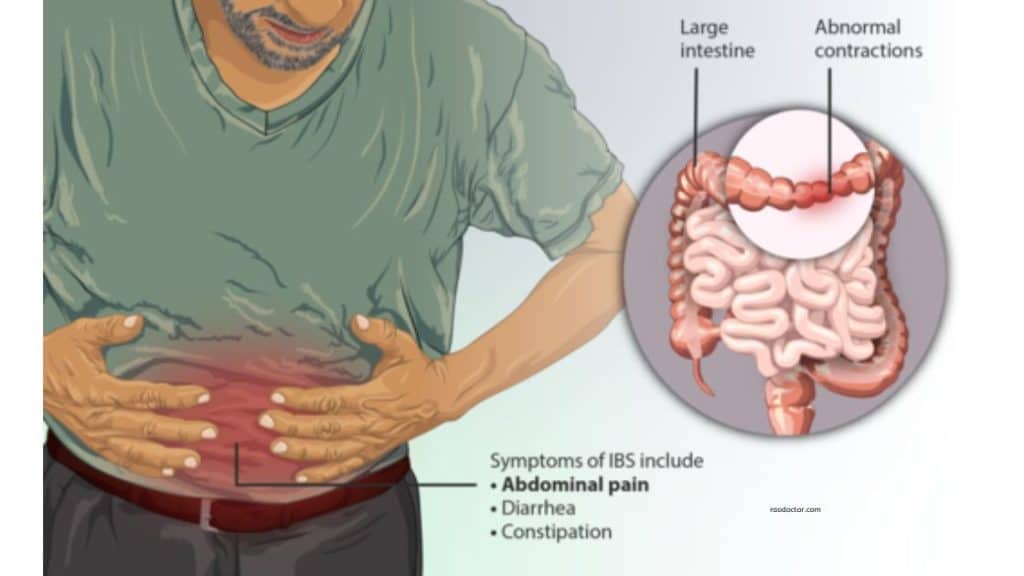In my previous article, I discussed in general different allergies that one can suffer from. Here, in this article we will learn all about allergies caused by foods.
Have you ever experienced digestive issues after consuming certain foods? If yes, you’re not alone. Millions of people around the world suffer from gastrointestinal diseases triggered by food allergies every day.

Image Source: Canva
From gluten to dairy, there are a variety of common food allergens that can wreak havoc on your digestive system.
Table of Contents
How do we define food allergy?
A food allergy is an adverse reaction that occurs when the immune system mistakenly identifies certain components in food as harmful substances. This triggers an immune response, leading to a range of symptoms that can vary in severity.
Common food allergens include peanuts, tree nuts, shellfish, eggs, milk, and wheat. When someone with a food allergy consumes an allergenic food, they may experience symptoms such as hives, swelling, nausea, vomiting, difficulty breathing, or even anaphylaxis, a life-threatening allergic reaction.
Food allergies can significantly impact a person’s quality of life, requiring them to carefully avoid specific foods and carry emergency medication, such as an epinephrine auto-injector, in case of accidental exposure.
If you’re struggling to identify the cause of your digestive discomfort, this comprehensive guide is here to help. We’ll dive into the most common food allergens and how they can affect your gut health.
Understanding the link between food allergies and gastrointestinal diseases can be the key to finding relief and living a happier, healthier life. So, let’s get started on this journey to better gut health!
Common food allergens and their effects on the digestive system
Before diving into this article, let me narrate an interesting story on food allergy.
A few years back, when I was in the second year of my medical school, I happened to notice a weird condition in one of my classmates. We were having our lunch in our mess and suddenly this friend developed swollen lips and bumps all over his body while eating, somewhat like the picture shown below. What was happening here?

This particular condition is known as angioedema with urticaria or hives (have a look at the picture above). And this happened because that friend of mine was allergic to cucumbers, and he had accidentally eaten one from the salad 🥗 plate in front of him.
Food allergies are a common cause of many gastrointestinal issues. Some of the most common food allergens include
- gluten,
- dairy,
- soy,
- shellfish,
- nuts, and
- eggs.
When these allergens are consumed, the immune system mistakenly identifies them as harmful and triggers an immune response. This response can cause a range of digestive symptoms, including bloating, gas, diarrhea, and abdominal pain to angioedemaand hives.
Gluten is a protein found in wheat, barley, and rye. For individuals with celiac disease or gluten intolerance, consuming gluten can trigger an immune response that damages the lining of the small intestine. This damage can lead to malabsorption of nutrients and a range of gastrointestinal symptoms.
Dairy is another common allergen that can cause digestive issues. Lactose intolerance is a condition where the body is unable to break down lactose, a sugar found in milk and other dairy products. When lactose is not properly broken down, it can cause bloating, gas, and diarrhea.
Soy is another common allergen that can cause digestive issues. Soy contains compounds called phytoestrogens, which can interfere with the body’s ability to absorb nutrients. This can lead to a range of gastrointestinal symptoms, including bloating, gas, and diarrhea.
Useful resource- Food Allergies
Celiac disease and gluten intolerance
Celiac disease is an autoimmune disorder that affects the small intestine. It is triggered by the consumption of gluten and can cause a range of gastrointestinal symptoms, including bloating, gas, diarrhea, and abdominal pain.
Over time, celiac disease can lead to damage to the lining of the small intestine, which can lead to malabsorption of nutrients.
Gluten intolerance, also known as non-celiac gluten sensitivity, is a condition where individuals experience symptoms similar to celiac disease when consuming gluten, but do not have the autoimmune response that characterizes celiac disease. Symptoms of gluten intolerance can include bloating, gas, diarrhea, and abdominal pain.
Listen to this podcast to know how foods can cause Celiac disease:-
If you suspect you have celiac disease or gluten intolerance, it is important to seek medical advice. A doctor can perform tests to diagnose the condition and provide guidance on how to manage it.
Irritable bowel syndrome (IBS) and food allergies
Irritable bowel syndrome (IBS) is a common gastrointestinal disorder that affects the large intestine. It is characterized by a range of symptoms, including abdominal pain, bloating, gas, and changes in bowel habits.
While the exact cause of IBS is not known, there is evidence to suggest that food allergies may play a role in the development of the condition.

Elimination diets, where certain foods are removed from the diet to identify triggers, can be helpful in managing IBS symptoms.
Common food allergens, such as gluten and dairy, are often eliminated from these diets in treatment of irritable bowel syndrome. If you are experiencing symptoms of IBS, it is important to work with a healthcare provider to determine the best course of action.
Lactose intolerance and dairy allergies
Lactose intolerance is a condition where the body is unable to break down lactose, a sugar found in milk and other dairy products. When lactose is not properly broken down, it can cause bloating, gas, and diarrhea.
Lactose intolerance is a common condition,mostly in children, and can be managed by avoiding or limiting dairy products.
Dairy allergies are another type of food allergy that can cause digestive issues. Dairy allergies are more common in children than adults and can cause a range of symptoms, including hives, wheezing, and digestive issues. Treatment for dairy allergies involves avoiding all dairy products.
Fructose malabsorption and its connection to food allergies
Fructose malabsorption is a condition where the body is unable to properly absorb fructose, a sugar found in many fruits and sweeteners. When fructose is not properly absorbed, it can cause a range of digestive symptoms, including bloating, gas, and diarrhea.
There is some evidence to suggest that fructose malabsorption may be connected to food allergies.
Elimination diets that remove fructose and other common food allergens can be helpful in managing symptoms of fructose malabsorption.
If you suspect you have fructose malabsorption or are experiencing symptoms, it is important to seek medical advice.
Useful resource- The Celiac MD
Diagnosis and treatment options for gastrointestinal diseases caused by food allergies
Diagnosing gastrointestinal diseases caused by food allergies can be challenging. Symptoms can be similar across different conditions, and it can be difficult to identify the specific allergen causing the symptoms. However, there are a variety of tests and procedures that can be used to diagnose these conditions, including blood tests, skin prick tests, and elimination diets.
Once a diagnosis has been made, treatment options will depend on the specific condition and severity of symptoms. In many cases, avoiding the allergen is the best course of action. Other treatment options may include medications, dietary changes, and supplements.
The role of FODMAPs in gastrointestinal disorders
FODMAPs (short for fermentable oligo-, di-and monosaccharides and polyols) are a type of carbohydrate found in many foods, including fruits, vegetables, and grains. For individuals with gastrointestinal disorders, such as IBS, consuming high amounts of FODMAPs can trigger symptoms. A low-FODMAP diet, which restricts the intake of certain carbohydrates, can be helpful in managing symptoms.
It is important to note that a low-FODMAP diet should only be followed under the guidance of a healthcare provider, or a dietitian suggested by your doctor. Restricting certain carbohydrates can lead to nutrient deficiencies and so it should be done with caution.
Tips for managing food allergies and gastrointestinal symptoms
Managing food allergies and gastrointestinal symptoms can be challenging, but there are steps you can take to make it easier. Some tips for managing these conditions include:
- Keep a food diary to identify triggers
- Work closely with a healthcare provider to develop a management plan
- Avoid or limit common allergens, such as gluten and dairy
- Experiment with alternative foods and ingredients
- Consider working with a registered dietitian to develop a balanced and nutritious diet
Foods to avoid and alternatives for individuals with food allergies
For individuals with food allergies, it can be challenging to navigate the world of food. Many foods contain common allergens, such as gluten and dairy, making it difficult to find safe options. However, there are many alternative foods and ingredients that can be used to create delicious and nutritious meals.
Some foods to avoid for individuals with food allergies include:
- Wheat, barley, and rye (for individuals with celiac disease or gluten intolerance)
- Milk and other dairy products (for individuals with lactose intolerance or dairy allergies)
- Soy products (for individuals with soy allergies)
Alternative foods and ingredients for individuals with food allergies include:
- Gluten-free grains, such as quinoa, rice, and corn
- Dairy-free milk alternatives, such as almond milk or oat milk
- Non-soy protein sources, such as beans, lentils, and tofu made from chickpeas or other legumes
Useful resource-
Food Allergies by Cleveland Clinic
Conclusion and the importance of seeking medical advice
Gastrointestinal diseases triggered by food allergies can be challenging to manage, but with the right diagnosis and treatment, it is possible to find relief.
If you are experiencing digestive symptoms, it is important to seek medical advice. A healthcare provider can help identify the cause of your symptoms and develop a management plan that works for you.
From eliminating common allergens to experimenting with alternative foods and ingredients, there are many steps you can take to find relief and live a happier, healthier life.
Final Words
I hope you have found this article useful. If yes, do share it using the social media icons at the bottom of this article. Alternately, you can click to tweet here-
From Gluten to Dairy: A Comprehensive Guide to Gastrointestinal Diseases Triggered by Food Allergies Share on XMy next article will be on modern imaging methods or technologies to diagnose diseases in our body. Do stay tuned or subscribe to Dr. K.P.V.Rao’s Health Blogs by sharing your mail ID.
Adios.

